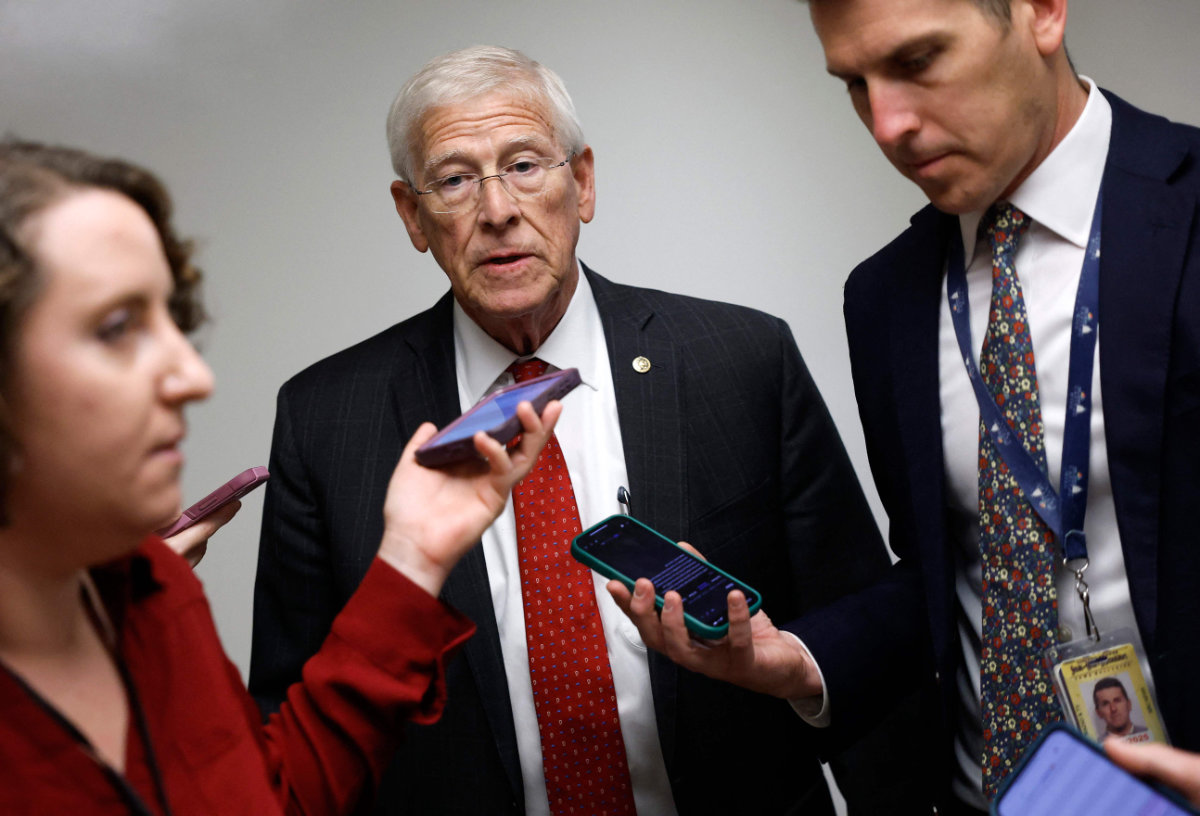WASHINGTON: Robert F. Kennedy Jr., an anti-vaccine activist and environmentalist, for years gained a loyal and fierce following with his biting condemnations of how the nation’s public health agencies do business.
And that’s put him on a direct collision course with some of the 80,000 scientists, researchers, doctors and other officials who work for the Department of Health and Human Services, especially with President-elect Donald Trump tapping him to head the agency.
If confirmed, Kennedy will control the world’s largest public health agency, and its $1.7 trillion budget.
The agency’s reach is massive. It provides health insurance for nearly half of the country — poor, disabled and older Americans. It oversees research of vaccines, diseases and cures. It regulates the medications found in medicine cabinets and inspects the foods that end up in cupboards.
A look at Kennedy’s comments about some of the agencies that fall within the HHS arena, and how he has said he plans to shake them up:
Food and Drug Administration
— “FDA’s war on public health is about to end,” he wrote on X in late October. “If you work for the FDA and are part of this corrupt system, I have two messages for you: 1. Preserve your records, and 2. Pack your bags.”
The FDA’s 18,000 staffers include career scientists, researchers, and inspectors responsible for the safety and effectiveness of prescription drugs, vaccines and other medical products. The agency also has broad oversight of a swath of consumer goods, including cosmetics, electronic cigarettes and most foods.
HHS has legal authority to reorganize the agency without congressional approval to maintain the safety of food, drugs, medical devices and other products.
And Kennedy has long railed against the FDA’s work on vaccines. During the COVID-19 epidemic, his nonprofit group, Children’s Health Defense, petitioned the FDA to halt the use of all COVID vaccines. The group has alleged that FDA is beholden to “big pharma” because it receives much of its budget from industry fees and some employees who have departed the agency have gone on to work for drugmakers.
His attacks have grown more sweeping, with Kennedy suggesting he will clear out “entire departments” at FDA, including the agency’s food and nutrition center. The program is responsible for preventing foodborne illness, promoting health and wellness, reducing diet-related chronic disease and ensuring chemicals in food are safe.
Last month, Kennedy threatened on social media to fire FDA employees for “aggressive suppression” of a host of unsubstantiated products and therapies, including stem cells, raw milk, psychedelics and discredited COVID-era treatments like ivermectin and hydroxychloroquine.
In the case of hydroxychloroquine, for example, the agency halted its emergency use after determining it wasn’t effective in treating COVID and raised the risk of potentially fatal heart events.
Consuming raw milk has long been regarded as risky by the FDA because it contains a host of bacteria that can make people sick and has been linked to hundreds of illness outbreaks.
If confirmed, Kennedy in principle could overturn almost any FDA decision. There have been rare cases of such decisions in previous administrations. Under both George W. Bush and Barack Obama, HHS overruled FDA approval decisions on the availability of emergency contraceptives.
Unwinding FDA regulations or revoking approval of longstanding vaccines and drugs would likely be more challenging. FDA has lengthy requirements for removing medicines from the market, which are based on federal laws passed by Congress. If the process is not followed, drugmakers could bring lawsuits that would need to work their way through the courts.
Centers for Disease Control and Prevention
— “On January 20, the Trump White House will advise all US water systems to remove fluoride from public water,” Kennedy wrote on social media in November.
The CDC’s fluoride guidance is just one recommendation the agency has made as part of its mission to protect Americans from disease outbreaks and public health threats.
The agency has a $9.2 billion core budget and more than 13,000 employees
Days before Trump’s victory, Kennedy said he would reverse the agency’s recommendations around fluoride in drinking water, which the CDC currently recommends be at 0.7 milligrams per liter of water.
The recommendations have strengthened teeth and reduced cavities by replacing minerals lost during normal wear and tear. Splotchy teeth patterns have occurred with higher levels of fluoride, prompting the US government to lower its recommendations from 1.2 milligrams per liter of water in 2015.
Local and state governments control the water supply, with some states mandating fluoride levels through state law.
Kennedy, who has said “there’s no vaccine that is safe and effective,” would be in charge of appointments to the committee of influential panel experts who help set vaccine recommendations to doctors and the general public. Those include polio and measles given to infants and toddlers to protect against debilitating diseases to inoculations given to older adults to protect against threats like shingles and bacterial pneumonia as well as shots against more exotic dangers for international travelers or laboratory workers.
National Institutes of Health
— “We need to act fast,” Kennedy was reported to have said during an a Scottsdale, Arizona event over the weekend. “So that on Jan. 21, 600 people are going to walk into offices at NIH and 600 people are going to leave.”
The agency’s $48 billion budget funds medical research on cancers, vaccines and other diseases through competitive grants to researchers at institutions throughout the nation. The agency also conducts its own research with thousands of scientists working at NIH labs in Bethesda, Maryland.
Among advances that were supported by NIH money are a medication for opioid addiction, a vaccine to prevent cervical cancer, many new cancer drugs and the speedy development of mRNA COVID-19 vaccines.
In the past, Kennedy has criticized NIH for not doing enough to study the role of vaccines in autism.
Kennedy wants half of the NIH budget to go toward “preventive, alternative and holistic approaches to health,” he wrote in the Wall Street Journal in September. “In the current system, researchers don’t have enough incentive to study generic drugs and root-cause therapies that look at things like diet.”
Kennedy wants to prevent NIH from funding researchers with financial conflicts of interest, citing a 2019 ProPublica investigation that found more than 8,000 federally funded health researchers reported significant conflicts such as taking equity stakes in biotech companies or licensing patents to drugmakers.
Centers for Medicare and Medicaid Services
— “If a doctor’s patient has diabetes or obesity, the doctor ought to be able to say, I’m going to recommend gym membership, and I’m going to recommend, good food and Medicaid ought to be able to finance those things the same as they would Ozempic,” Kennedy said during a Sept. 30 town hall in Philadelphia.
Kennedy has not focused as much on the agency that spends more than $1.5 trillion yearly to provide health care coverage for more than half of the country through Medicaid, Medicare or the Affordable Care Act.
Even as Trump and other Republicans have threatened some of that coverage, Kennedy has remained mum.
Instead, he’s been an outspoken opponent of Medicare or Medicaid covering expensive drugs that were developed to treat diabetes, like Ozempic, now also sold for weight loss as Wegovy. Those drugs are not widely covered by either program, but there’s some bipartisan support in Congress to change that.
Speaking during a congressional roundtable in September, Kennedy admonished some for supporting that effort, noting it could cost the US government trillions of dollars. An exact price tag for the US government to cover those drugs has not been determined.
Kennedy has said Medicare and Medicaid should, instead, provide gym memberships and pay for healthier foods for those enrollees.
“For half the price of Ozempic, we could purchase regeneratively raised, organic food for every American, three meals a day and a gym membership, for every obese American,” Kennedy said.
Here’s how Robert F. Kennedy Jr. has promised to remake the US’ top health agencies
https://arab.news/5pxdr
Here’s how Robert F. Kennedy Jr. has promised to remake the US’ top health agencies

- Kennedy, who has said “there’s no vaccine that is safe and effective,” would be in charge of appointments to the committee of influential panel experts who help set vaccine recommendations






























